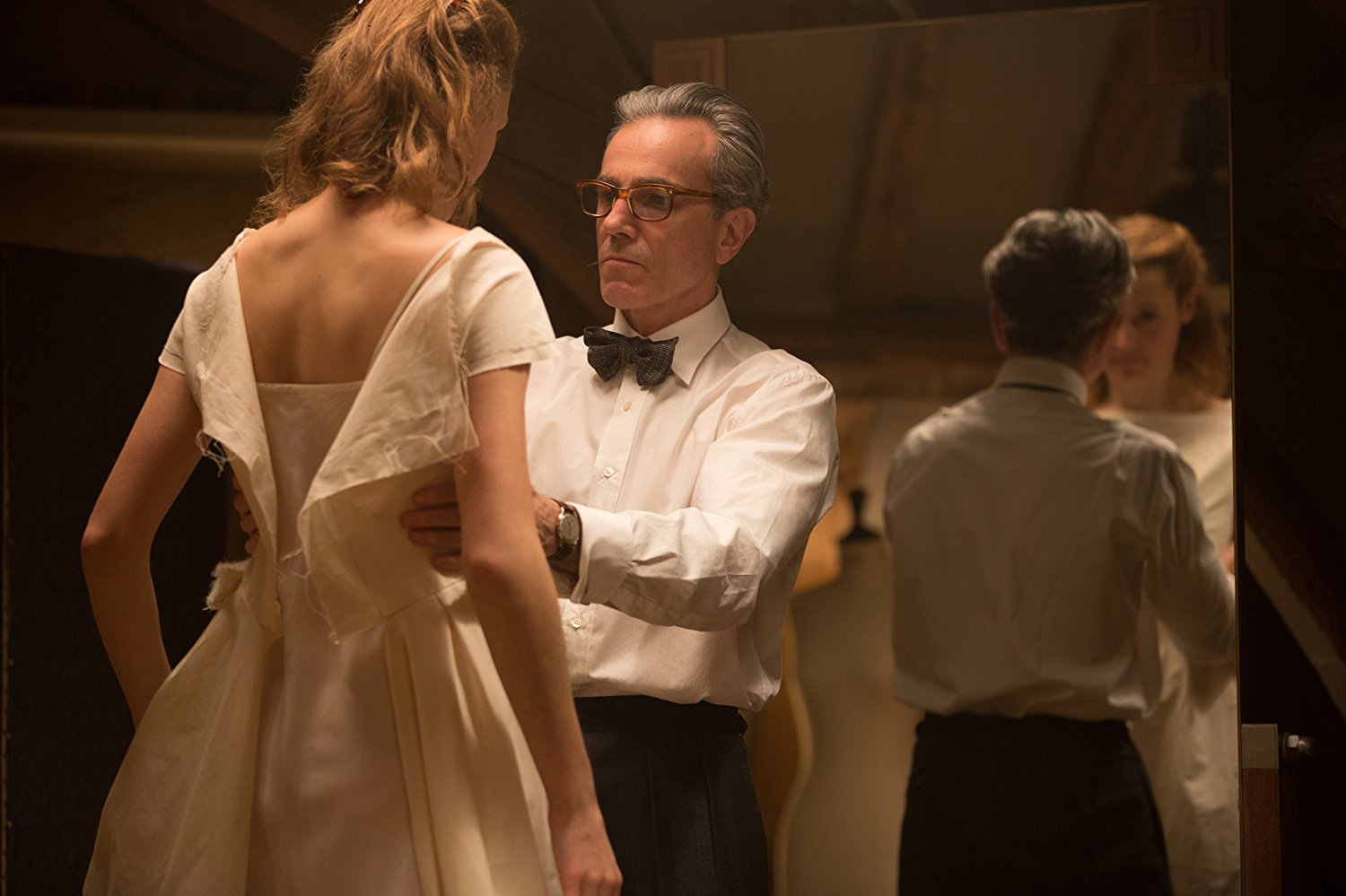‘Phantom Thread’ Is a Disturbing Oscar Nominee
Famous 1950s’ London fashion designer Reynolds Woodcock likes the color purple and manipulating women. Those might be his best qualities. His sister Cyril, played by the magnificent Lesley Manville, is, at that time in history, considered an old maid and she never breaks a smile. She controls his business empire with an iron fist and will not let anyone perturb her darling younger brother or his business interests.
The film opens at breakfast with Reynolds Woodcock blithely announcing: “I can’t start a day with a confrontation.” Of all the roles that Daniel Day-Lewis has played, none suits him better than this one.
If he were discussing anything other than what type of Danish he prefers, we might think he has a point. His girlfriend has made the mistake of picking the wrong doughnut or perhaps of being too simpleminded for him and, at first, we don’t know which. Reynolds, it turns out, is mainly bored.
His sister intercedes: “Shall I get rid of her?” Reynolds assents with all the enthusiasm of someone switching laundry brands and out she goes. He spits out every churlish assertion or enthusiastic outcry with remarkable veracity.
If Day-Lewis wins an Oscar on Sunday — or if Manville does — both would be well-deserved.
Off goes Reynolds Woodcock to the country. While breakfasting in a lovely country inn, he falls for his statuesque Nordic waitress Alma Elson, played by Vicky Krieps. She stumbles on the way to his table, then smiles at everything he says as he orders a gargantuan breakfast of Welsh rarebit, eggs and sausages. The two eventually fall in love, but the best that can be said for Alma is that she is either borderline insane or brilliantly conniving — or both.
Dare I say it? Yes. More than any of the characters, she gives me the creeps.
Phantom Thread has played to such rave reviews that I am loathe to dissent, but I found the main characters so morally repellent that I could not enjoy myself despite the movie’s production qualities. After about an hour or so, it morphed into some type of lurid extension of a fashionista’s fantasy turned to a nightmare. Without revealing an important plot turn, Reynolds ends up relishing a horrifying trick that Alma plays on him. It seems that he has met his match in deceit and complex ethical shenaniganry and that’s what matters most to him.
There are also a few nagging plot points, such as why Cyril, after hating just about every poor woman that Reynolds has brought home before, takes to Alma. Can she sense that Alma may be just strong or sick enough to best her brother? Why this need for revenge? Or is it admiration? And with no back story or explication, it is hard to place Alma and her quick ascent. Is she just a moral reprobate or wickedly clever? Unlike All About Eve where we recognize Anne Baxter’s character for what she is — smarter than the average Jezebel — the end of Phantom Thread doesn’t reveal what to make of Alma.
Hats off to Paul Thomas Anderson, who seemingly concocted the story and script out of thin air. None of the characters is based on real people, though fashion-wise Anderson and costume designer Mark Bridges reputedly were inspired by the designs of Christian Dior and Cristóbal Balenciaga. In one scene where Reynolds and Alma race back home in the country in his stylish little sports car, they might be Katharine Hepburn and Spencer Tracy because the historical references in Phantom Thread are aplenty.
In the end, however, Phantom Thread is as claustrophobic as Reynolds Woodcock’s studio because its real subject is a twisted form of narcissistic pathology.
True, the sets and costumes are gorgeous. It is a visual feast. If you think you can stomach the main characters and whatever the director’s message may or may not be, then go see the film.
The Academy of Motion Picture Arts and Sciences nominated Phantom Thread for numerous awards: Best Picture, Best Director, Best Actor, Best Supporting Actress, Best Costume Design, and Best Original Music Score. It’s been showing in U.S. theaters since Christmas Day 2017.












